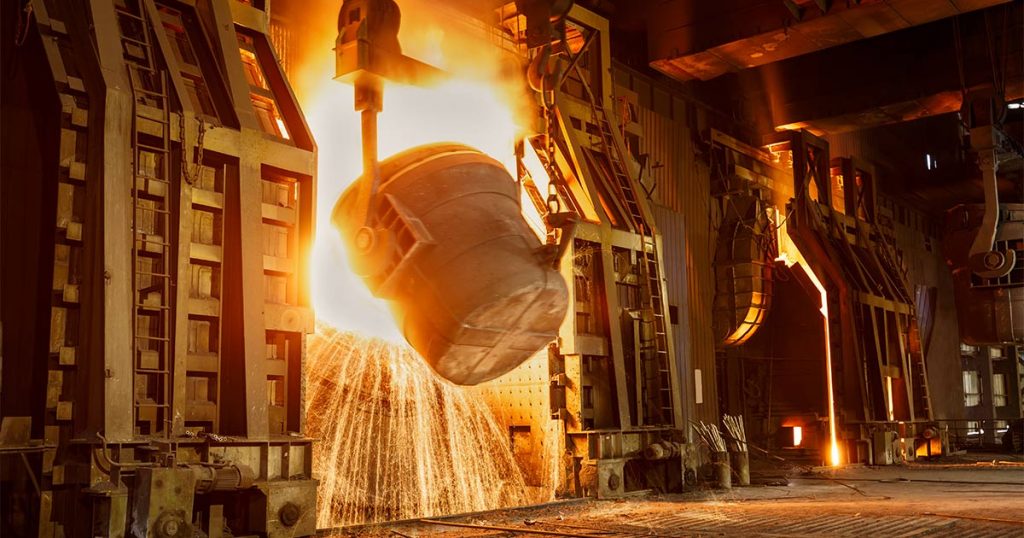Demand for steel continues to soar
Zimbabwe’s metal casting industry has called for a ban on scrap metal exports amid growing shortage of
feedstock.
THE value of Zimbabwe’s annual steel imports is now estimated at just under half billion US dollars following the collapse of the country’s largest steel maker, Zisco, in 2008.
The demand for steel has however kept growing in tandem with policy measures being implemented by the Government to turnaround the economy after nearly three decades of meltdown.
The metal foundries industry was previously dominated by Ziscosteel, a Government owned company, which has over the years been under care and maintenance.
In recent years, the economy has witnessed several infrastructure projects that require significant amounts of steel, which increased the demand for steel.
Most of the projects resonate with the country’s five year National Development Strategy 1 (NDS1), which puts more emphasis on infrastructure development.
A Zimbabwe Institute of Foundries (ZIF) summit held recently in Harare revealed the steel industry needed recalibration to ensure its revival through retooling, metal beneficiation and banning scrap metal exports.
“At the moment, the industry is in shambles. We really need to relook into it, and we hope the Government is coming up with new policies that will benefit the local industry and we also hope the industry is ready to participate,” said Coster Takawira of Baldmin Holdings.
Baldmin specialises in mineral processing plants, mining equipment manufacture, equipment refurbishment and plant maintenance.
Wilfred Motsi, the projects manager for Dinson Iron and Steel said struggling Zisco had left the country vulnerable to the need to import steel, including from as far afield as China.
“As the country is pursuing a serious infrastructure roadmap, we have consumed a lot of steel products so the onus is to develop our (domestic) industry,” he said.
Andrew McFarlane from South Africa said Zimbabwe’s foundry industry should invest in innovative technologies and software in order to improve the quality of metal products.
He said technology could help reduce costs, which have resulted in local steel becoming expensive compared to imports.
Finance and Economic Development Minister Mthuli Ncube earlier indicated the Government would consider giving the metal industry players tax rebates for the importation of critical raw materials.
“As the Government we will fully support the promotion of import substitution of metals products through relevant policy interventions,” he said.
Minister Ncube said the Government, through NDS1, was aware of the need to reindustrialise and unlock Zimbabwe’s metal casting industry in the short-medium and long term plans.
“If we extract mineral metals through mining, beneficiate these through tool making and die casting, we can begin to re-industrialise our economy,” he said.
He said the Government saw opportunities to grow the industry and took advantage of various incentives that were available for all businesses that support import substitution and export generation.
Deputy Minister Mines and Mining Development Polite Kambamura said the metal casting industry was facing challenges of raw materials due to the closure of Zisco.
He said the steel foundry industry players should complete the value chain cycle by owning small scale mines and furnaces, indicating that the Government remainedcommitted to the capacitation of the metal foundry industry and was in the process of effecting a total ban on the export of scrap metal.
Meanwhile, other challenges faced by the metal casting engineering sector included limited access to finance and foreign currency for importation of raw materials and capital equipment, stiff competition from imports, liberal export of scrap metals that starve the local industry of critical inputs and obsolete technology leading to high cost of production.
Others are erratic power supplies and low product uptake particularly by the Automotive sector, among others.
However, Cabinet recently approved the partnership between Zisco and Kuvimba Mining House, one of the country’s largest mining outfits with interest in gold, platinum, chrome and nickel – for the resuscitation of iron mining and steel processing.
Kuvimba has reportedly proposed to invest as much as US$1,3 billion over three years and targets annual steel output of one million tonnes.
Kuvimba is 65 percent owned by various State vehicles while the remainder is owned by management.
The mining giant, which has less than two years in operation, won the tender to revive once Africa’s largest integrated steel works ahead of other six bidders.
China’s Tsingshan Holding Group is also looking to develop an iron ore mine and a carbon steel plant in Zimbabwe after signing a US$1 billion agreement with Zimbabwe in 2018.
The demand for steel has resulted in the proliferation of companies involved in the lucrative steel recycling business, but their products are not usually recommended by engineers for lacking standard levels of strength, depending on the use.-The Herald











